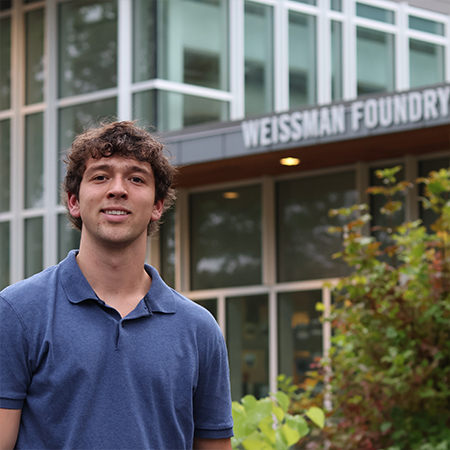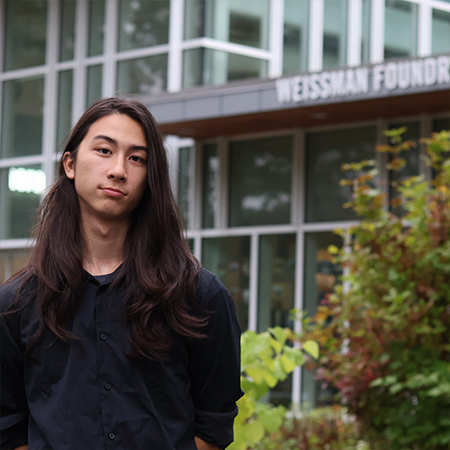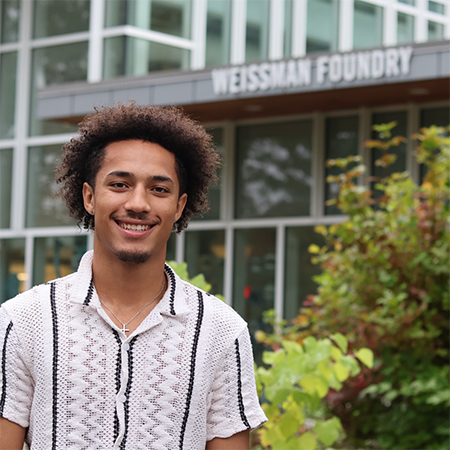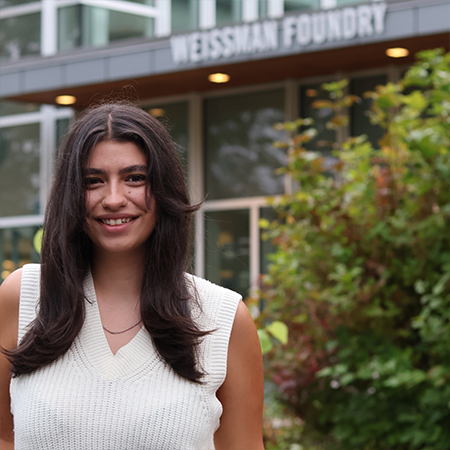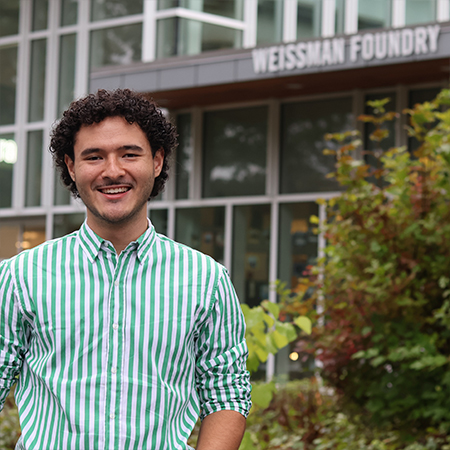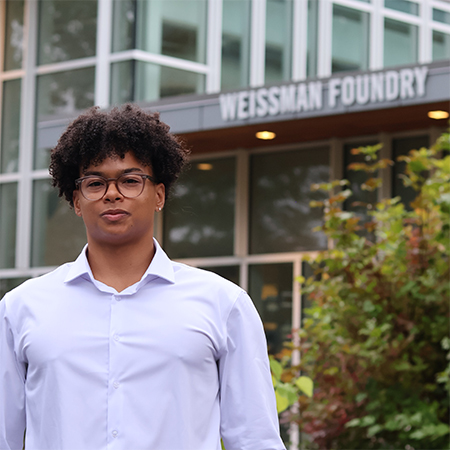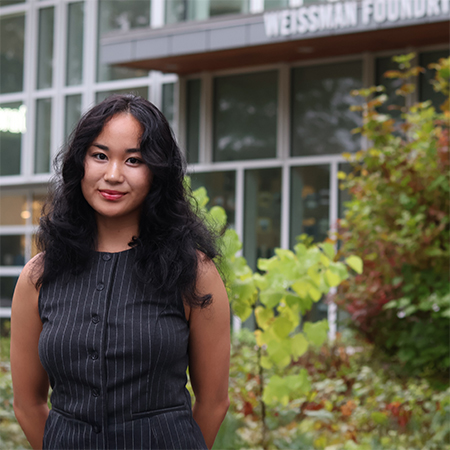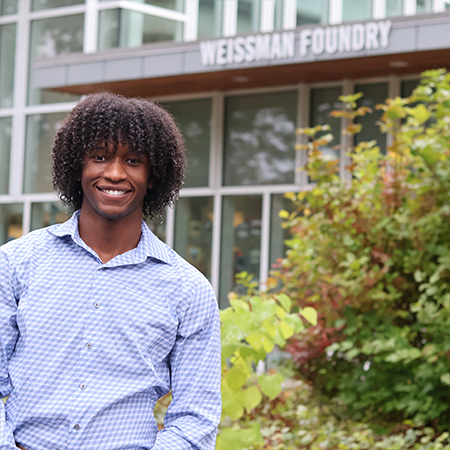

Leadership
The Generator is led by an interdisciplinary Babson faculty team which oversees its research, experimentation, programming, and partnerships.

Erik Noyes
Director and Associate Professor of Entrepreneurship
Michael London ’92 and Stephen H. Kramer ’92 Term Chair in Entrepreneurship
Leader of the The Generator’s AI Entrepreneurship & Business Innovation Specialty Lab
“AI is the single most important technological, societal, ethical, and business innovation issue of our time. Leaders, entrepreneurs, and innovators of all kinds must understand both the opportunities and risks presented by the emerging AI-age.”
AI research interests
- AI for business innovation
- AI for the rapid prototyping of entrepreneurial ideas
- AI & experiential entrepreneurship education
- AI and the future of innovation management
Erik Noyes is an Associate Professor of Entrepreneurship at Babson College. An expert in innovation, growth strategy, and AI, Noyes teaches courses in entrepreneurial thinking, new venture creation, and business innovation. His research examines entrepreneurship, disruptive innovation, and AI in entrepreneurship and innovation. He teaches Entrepreneurial Opportunities in AI at Babson, among other graduate and undergraduate entrepreneurship courses. Prior to joining Babson, Noyes consulted with companies like Nokia, Motorola, BMW, and Hewlett-Packard Healthcare to explore new growth businesses.
Recent publications
“Entrepreneurship Education at the Dawn of Generative Artificial Intelligence.” Entrepreneurship Education & Pedagogy (EE&P).

Sebastian Fixson
Associate Dean of Graduate Programs and Innovation, F.W. Olin Graduate School of Business
Marla M Capozzi MBA ’96 Term Chair in Design Thinking, Innovation, and Entrepreneurship
Professor of Innovation & Design
Leader of The Generator’s Work Futures Specialty Lab
“AI will have profound effects on what we do at work and how we work together. These are fascinating times to help shape these new forms of work.”
AI research interests
- AI and the Future of Work
- AI in Innovation
- AI in Design
Dr. Fixson concentrates his work on helping people and organizations build innovation capabilities, an increasingly important aspect of the future of work. In his research, he investigates how factors such as structure and governance of innovation processes, practices like design thinking, and the use of digital design tools affect the nature and outcome of innovation work. He teaches innovation, design, and operations management related courses, and has developed new ways of how to teach innovation, including programs, spaces, and simulations.
Recent publications
Schweitzer, J., BenMahmoud-Jouini, S., Fixson, S.K. (2023). Transform with Design: Creating New Innovation Capabilities with Design Thinking. Rotman - University of Toronto Press.
Marion, T.J., Fixson, S.K. (2021). “The Transformation of the Innovation Process: How Digital Tools are Changing Work, Collaboration, and Organizations in New Product Development.” Journal of Product Innovation Management. Vol: 38, Issue: 1, Page: 192-215. Wiley.
Marion, T.J., Fixson, S.K., Brown, G. (2020).“Four Skills Tomorrow’s Innovation Workforce Will Need.” MIT Sloan Management Review. Vol: 61, Issue: 3, Page: 8-13. MIT.

Ruth Gilleran
Professor of Practice, Operations and Information Management
Co-Director of Foundations of Management & Entrepreneurship (FME)
Co-leader of The Generator’s AI Entrepreneurship & Business Innovation Specialty Lab
“AI has unleashed a digital workforce that can assist entrepreneurs at every stage of their entrepreneurial journey, from ideation to venture growth.”
AI research interests
- Gaining efficiencies using AI
- Managing change amidst the AI digital workforce
- Creating closed AI large language models
- Training AI systems
Ruth Gilleran is a Professor of Practice in the Operations and Information Management division. She teaches courses in digital technologies as well as entrepreneurship and her research interests lie at the intersection of the two, namely tech entrepreneurship. For the past several years, Gilleran served as the co-coordinator of Babson’s core undergraduate technology course, and she now co-leads its year-long flagship entrepreneurship program. Prior to joining Babson, Gilleran served as Assistant Vice President of Computer Associates’ enterprise business and data analytics applications.
Recent publications
“Supervised Machine Learning: An Experiential and Reflective Session.”

Kristi Girdharry
Associate Teaching Professor of English
Leader of The Generator’s AI for Research & Writing Specialty Lab
“To ‘be better than a robot’ (my favorite phrase), we need to critically and ethically understand the possibilities of AI as a tool that supports our human inquiry as opposed to letting it dictate or limit our perspectives and creativity.”
AI research interests
- AI for enhancing writing pedagogy and research
- AI and ethical communication
- AI as a tool for equity
- AI and the evolution of rhetorical practices
Kristi Girdharry is an Associate Teaching Professor of English and Director of the Writing Center at Babson College where she teaches courses in writing, tutoring, and social media. Her research interests include teaching-for-transfer, community engagement, inclusive pedagogies, and how AI is enhancing or disrupting each of these areas. In addition to research and teaching, she is on the Executive Committee for the Association for Writing Across the Curriculum (AWAC), reviews for various journals, and is a co-editor for the Best of the Journals in Rhetoric and Composition series, which offers annual snapshots of the exigent themes, trends, and ideas within Writing Studies.
Research/Thought Leadership
“Teaching With AI: A Journey Through Grief”
“Meaningful Writing in the Age of Generative Artificial Intelligence” (w/Davit Khachatryan)
“Ethics and AI Assemblages: A Heuristic Analysis of Undergraduate Business Student Perspectives” (w/Stephen McElroy)
“Embodying Rhetoric: Quick Scripts and ‘Acts’ of Persuasion” (w/Beth Wynstra)
Recommended Resources
“Spilling the AI Tea and the Important Work of Community Building”
“How a Writing Professor Embraces AI at Babson” (Chabot)
“AI in Action: How Babson Students Use Technology to Transform Research and Business” (Chabot)
“A Day for Questions, Insights, and Connections” (Crawford)
“Why Faculty Should Lead the AI Revolution” (w/Erik Noyes)
“Members of the ‘BOW’ Community Explore AI’s Role in Storytelling” (Edwards)
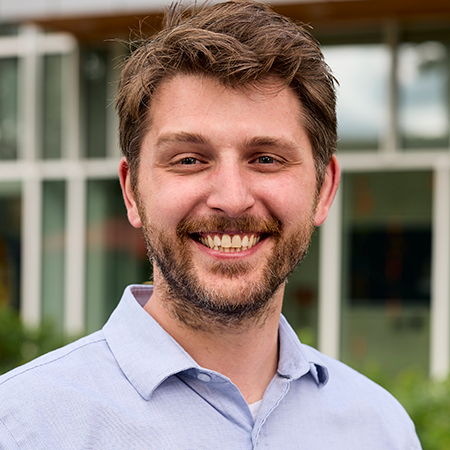
Jonathan Griffiths
Director, The Weissman Foundry
Leader of The Generator’s Prototyping with AI Specialty Lab
“AI has made it possible to create at a pace and depth that has not been possible before. It has and will continue to enable entrepreneurs and innovators the opportunity to develop new solutions to high-value problems much more rapidly and with less skill-building than ever before. It will change how we view creation.”
AI research interests
- Generative AI for rapid prototyping new products and ideas
- Ethical considerations in AI-driven prototyping
- Human-AI collaboration in prototyping
Jonathan is an educator and leader with nearly two decades of experience dedicated to innovation, technology, and fostering inquisitiveness in students and educators alike. Currently he leads the Weissman Foundry at Babson College, a transformative cross-college initiative and makerspace. The Foundry empowers students to create with purpose, embrace entrepreneurship, and make their ideas a reality. He has expanded the Foundry’s impact exponentially, delivering hands-on training to thousands and nurturing a unique community culture. Prior to this, he served as a Curriculum Developer, Advisor, and Teacher helping schools adopt impactful curricula and fostering collaboration across disciplines.
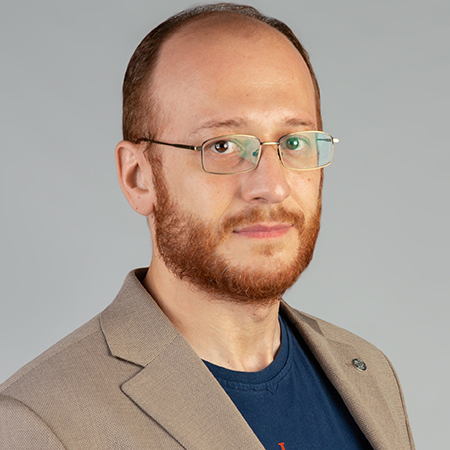
Davit Khachatryan
Associate Professor, MAST
Leader of The Generator’s AI & ML Empowerment Specialty Lab
“The ML tools underlying AI are technical but can be made intuitive and accessible to users. Gaining an intuitive understanding of what happens under the hood of AI technology will empower humans as AI continues to permeate our daily lives.”
AI research interests
- AI and Machine Learning
- AI pedagogy
- Generative AI
Davit Khachatryan is a data scientist specializing in machine learning and natural language processing. His pedagogical innovations include the development of Playmeans, a web app for inclusive data science education using live data from Spotify; as well as Cases used in teaching time series analysis. Before Babson College, he was a Senior Associate at PricewaterhouseCoopers (PwC), focusing on predictive modeling and advanced data analytics for clients in healthcare, finance, and government sectors. At Babson, he teaches courses in machine learning, data science, and statistics.
Recent publications
Girdharry, K., & Khachatryan, D. (2024). Meaningful Writing in the Age of Generative Artificial Intelligence. Double Helix, 11.
Khachatryan, D. (2023). Playmeans: Inclusive and Engaging Data Science through Music. Journal of Statistics and Data Science Education, 31(2), 151-161.
Eloyan, A., Yue, M. S., & Khachatryan, D. (2020). Tumor heterogeneity estimation for radiomics in cancer. Statistics in medicine, 39(30), 4704-4723.

Jason Mohaghegh
Associate Professor of Comparative Literature
Leader of The Generator’s AI Ethics & Society Specialty Lab
“AI opens a Pandora’s Box of possibilities and challenges for the future. The outer limits of its potentials remain unknown, and so we must imagine what it might mean to cross this point of no return.”
AI research interests
- AI and Cultural Movements
- AI and Virtual Realities
- AI and Philosophy (time, space, mind, body)
- AI and the Ethics of the Future
- AI and Existential Risk
Jason Bahbak Mohaghegh is a philosopher, literary theorist, and Associate Professor of Comparative Literature at Babson College. His scholarly work explores concepts of chaos, illusion, violence, disappearance, delirium, silence, secrecy, and apocalypse. He has published nine books to date, including: The Chaotic Imagination (2010); Inflictions: The Writing of Violence (2012); The Radical Unspoken (2013); Insurgent, Poet, Mystic, Sectarian (2014); a two-volume project on “night” titled Night: A Philosophy of the After Dark (2020) and Night II: A Philosophy of the Last World (2022); and a two-volume project on “madness” titled Omnicide: Mania, Fatalism, and the Future-In-Delirium (2019) and Omnicide II: Mania, Doom, and the Future-In-Deception (2023). He is also the Founding Director of the Future Studies Program and Editor of the Futures Theory book series with Bloomsbury Press.
Recent publications
Omnicide: Mania, Fatalism, and the Future-In-Delirium (MIT Press, Urbanomic Series, 2019)
Omnicide II: Mania, Doom, and the Future-In-Deception (MIT Press, Urbanomic Series, 2023)

Jonathan Sims
Associate Professor of Strategic Management
Leader of The Generator’s AI & Experiential Learning Specialty Lab
“For the curious, AI has made this the most exciting time in a generation to be a teacher. AI is already changing the way our students learn; it’s up to us to make sure we use it to improve the way we teach.”
AI research interests
- AI for accelerated learning
- AI for creating teaching pedagogy
- AI for starting new ventures
- AI and the future of open innovation
Jonathan Sims is an Associate Professor of Entrepreneurship at Babson College. A scholar of strategy and innovation, Sims teaches courses in strategy, problem-solving, and moonshot innovations. His research examines open innovation, entrepreneurship, and teaching pedagogy.
Recent publications
Sims, J.P., Woodard, C.J. (2020). “Community interactions at crowd scale: hybrid crowds on the GitHub platform.” Innovation. Vol: 22, Issue: 2, Page: 105-127. Routledge.
Sims, J.P., Gichoya, J., Bhardwaj, G., Bogers, M. (2019). “Write Code, Save Lives: How a Community Uses Open Innovation to Address a Societal Challenge.” R & D Management. Vol: 49, Issue: 3, Page: 369-382.
Bhardwaj, G., Crocker, A., Sims, J.P., Wang, R.D. (2018). “Alleviating the Plunging-In Bias, Elevating Strategic Problem-Solving.” Academy of Management Learning & Education. Vol: 17, Issue: 3, Page: 279-301. Academy of Management.

Beth Wynstra
Associate Professor of English
Faculty Director, Center for Engaged Learning and Teaching
Founding Artistic Director of The Empty Space Theater
Leader of The Generator’s AI Arts & Performance Specialty Lab
“I am interested in courageous collaborations between artists/practitioners and AI. I am also interested in how AI can inspire bold classroom activities, assignments, and assessments. I’ve observed how such pedagogical innovations can cultivate creativity and critical thinking, while preparing students to thrive in a world outside the university.”
AI research interests
- AI for performance and improvisation
- AI and pedagogy
- AI and public discourse
Beth Wynstra is Associate Professor of English and Faculty Director of the Center for Engaged Learning and Teaching at Babson College. Beth teaches courses in Dramatic Literature, Theater History, Acting, and Public Speaking, and she regularly directs plays and musicals. Beth’s research interests include American drama, political theater, and gender studies, and her book Vows, Veils, and Masks: The Performance of Marriage in the Plays of Eugene O’Neill (University of Iowa Press, Theater History and Culture Series) was published in 2023. She regularly lectures and serves as a dramaturg or researcher at prominent regional and professional theaters across the U.S.
Recent publications
“The Heart/Roots Project and a Pandemic Pivot.” Journal of American Drama and Theater 35.2 (2023).
Vows, Veils, and Masks: The Performance of Marriage in the Plays of Eugene O’Neill. University of Iowa Press, Theater History and Culture Series (2023).
“From Page to Stage: Dramaturging the Female Voices of the Provincetown Players” in Teaching Modernist Women Writers in English. Modern Language Association of America (2021).
Student Leads

Partners

Patty Patria
Chief Information Officer, Babson College
“AI has the potential to transform higher education. Institutions that build holistic AI strategies to educate their students will foster innovation and prepare students to be competitive in a rapidly evolving digital world.”
AI research interests
- AI impacts on higher education
- AI impacts on Ethics and Security
- AI impacts on business
Patty Patria is the Chief Information Officer at Babson College. She is an innovative, strategic thinker with 20+ years of experience in higher education, collaborating with faculty, staff and students to envision and implement transformative solutions. She has passion for leveraging AI in higher education to improve outcomes and operations, and works collaboratively with faculty, staff and students on academic, student and administrative AI endeavors. Patty also has a strong risk and security background, and is helping Babson understand and manage that risks associated with AI through policy, process and technology.

Eric Palson
Senior Director, Academic Technologies
Adjunct Lecturer, Operations and Information Management Division
“AI touches all disciplines, all courses, and everyone in Higher Education. It is critical that we know how to use it and what opportunities it can afford us so our students are ready as they enter the workforce.”
AI research interests
- How AI impacts business
- How AI will shape academic technologies
- AI and assessment in education
- The intersection of AI and content/curriculum development
- The intersection of AI and Multimedia production
Eric currently holds the position as the Senior Director of Academic Technologies at Babson College where he leads a team of instructional designers, instructional technologists, and graphic designers. His responsibilities for the group include strategic thinking and planning around curriculum and faculty research, creating content for blended and online learning, training faculty, coaching, and implementing innovative academic technologies. In addition to his role in academic technology, Eric also teaches in the fields of UI/UX, graphic design, communications and collaboration in virtual environments.

Phil Ahn
Senior Director, Data Analytics and AI
“We are at the cusp of AI transformation and cross-disciplinary collaboration is critical to drive an AI-enabled future that is both safe and sustainable”
AI research interests
- AI for everyone
- AI impact for business
- AI and sustainability
- The future of AI
Phil Ahn is a Senior Director, Data Analytics & AI at Babson College, and an expert translator between business and technical. He has led digital and AI transformation across diverse industries including insurance, healthcare, and manufacturing. Phil is helping drive AI experimentation and scaling within the Babson community.
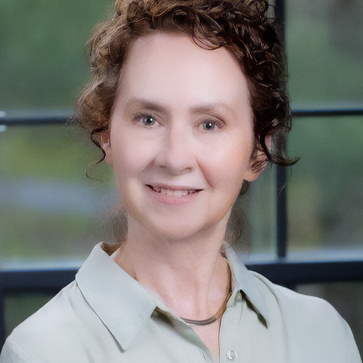
Cathleen Riley Chaves
Program Manager, The Generator Interdisciplinary AI Lab
Program Manager, Center for Engaged Learning & Teaching
“AI is poised to transform education; it is reshaping how students learn, educators teach, and empowers both to think critically and creatively.”
Cathleen currently holds the position of Program Manager for The Generator Interdisciplinary AI Lab where she provides essential organizational and administrative strategy, business analysis, and leadership skills to bring into focus and build out the academic vision and operational goals of The Generator AI Lab.
In addition to her role with The Generator, Cathleen is also Program Manager for the Center for Engaged Learning & Teaching at Babson College. In this role, she is responsible for implementing the College’s strategic initiatives and making resources available that support faculty development, as well as expanding the external visibility and teaching reputation of the College through the development, publication and distribution of innovative teaching materials and methods.
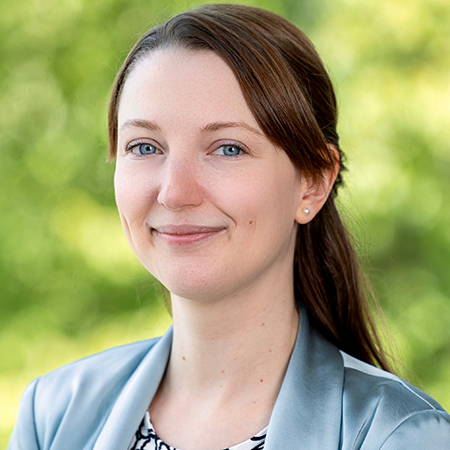
Saskia Kusnecov
Research and Instruction Librarian, Digital Literacy
“Generative AI tools represent a new way in which we can interact with information and require us to use our existing information literacy skills in novel contexts.”
AI research interests
- AI and Information/Digital Literacy
- AI and Human Information Behavior
Saskia Kusnecov is a Research and Instruction Librarian for Horn Library, and an Adjunct Lecturer in the Arts and Humanities division. She holds a Master's in Library and Information Science from Rutgers University.

Jason Snellings
Instructional Technologist
“We are just beginning the journey with AI—like any other educational tool before AI, understanding and experimentation are vital for improvement.”
AI research interests
- Closed vs open systems in higher education for data privacy
- Addressing concerns over AI use in education
- Prompt engineering
Fellows
The Generator is advised by world-class Fellows with far-reaching expertise in AI, covering its impact on business and in society.

